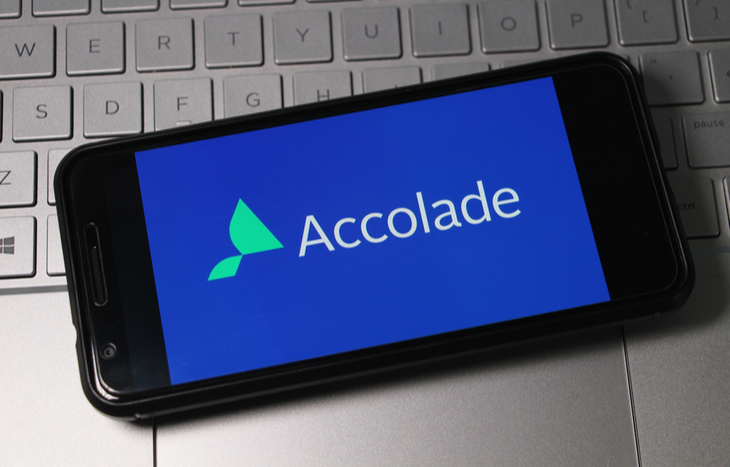Accolade IPO: Healthcare Company Launches Stock on Nasdaq
The Accolade IPO was filed back in February. But it wasn’t until July that the company went public. After a wave of healthcare IPOs, investors are wondering if Accolade stock is a good buy.
So is it a good investment? Here’s what we know…
Accolade IPO: The Business

Accolade provides personalized solutions to help people understand and use both the healthcare system and their workplace benefits. The company’s biggest customers are employers. Employers subscribe to Accolade to provide employees and families with a place to go to for help.
The platform combines cloud-based technology with support from a team of Accolade Health Assistants and clinicians. This team includes nurses, physician medical directors and behavioral health specialists. The company stated:
The U.S. healthcare system is complex and places significant strain on consumers, who struggle to effectively use their healthcare and benefits, make informed decisions about their health, and navigate the fragmented network of providers and third-party benefit programs. The recent onset of the COVID-19 global pandemic has only served to further exacerbate the complexity and frustration faced by consumers, as they seek information about the availability and accuracy of virus and antibody testing or face limits on their ability to access traditional care safely. Partly as a result of these challenges, the payers of healthcare, including managed care companies, the government, employers and consumers, face significant and rising costs.
The goal is to give clients personalized help. By doing so, Accolade believes it can improve member experience, promote better health and lower the cost of benefits.
The Accolade IPO is one of many recent healthcare and biotech IPOs. As a result of the coronavirus, some companies are launching stock as demand for services increases. But before you decide to invest in Accolade stock, let’s look at the finances.
Accolade’s Financial History
When looking to invest in any company, finances are often a first stop for investors. It’s important to understand where a company’s money is coming from – and where it’s going. Many startups are unprofitable when they go public, like Uber and Lyft were. This can also be the case for biotech companies, such as Forma Therapeutics. They rely on research funding and need federal approval.
Since 2018, Accolade has seen great revenue growth. Revenue for the fiscal year ending February 28, 2018 ,was $76.8 million. In 2019, that number went up to $94.8 million for a 23.4% year-over-year increase. Then, the company reported $132.5 million in revenue for the fiscal year ending February 28, 2020. That’s year-over-year growth of nearly 40%.
In addition to increased revenue, Accolade’s gross profit and margins have increased over the last three years. For 2018, gross profit was $23.7 million with a margin of 30.9%. In 2019, gross profit was $34.5 million for year-over-year growth of 46%. The gross margin increased to 36.4%. Finally, for the year ending February 28, 2020, gross profit was $59.1 million for 71% year-over-year growth. The gross margin increased to 44.6%.
However, Accolade currently has a net loss. But the good news is that this loss has decreased. In 2018, net loss totaled $61.3 million. And by 2020, the company got it down to $51.4 million.
So Accolade will hopefully increase revenue and decrease its net loss. This is good for long-term investors interested in Accolade stock. But like any investment, the Accolade IPO shows risks.
Accolade Stock: The Risks
Every investment has risk. Accolade is no exception. In addition to the company’s history of net losses, Accolade has several risk factors investors should think about before investing in Accolade stock. Below is a summary.
- A significant amount of revenue comes from Accolade’s largest customers. Losing one could have negative results.
- The company’s operating history is limited due to significant changes. It’s difficult to evaluate both current and future business prospects.
- Operations and finances can vary quarterly and annually, which may be reflected in stock price. Accolade lists several factors that can affect operations and finances, including gaining new customers, enrollment cycles and benefit practices of customers, and new offerings or changes in the structure of healthcare provider and payment systems. These are just a few.
- Company sales cycles can be long and unpredictable, requiring time and money. Due to this, sales, revenue and cash flow might be difficult to predict.
- The seasonality of the industry can affect financial and operating predictions.
- Accolade could fail to manage company growth and meet the competition’s efforts.
Accolade lists more points under the section entitled “Risk Factors” in the company’s prospectus. For more detailed information, you can find the filing here.
If you’re still interested in investing in Accolade stock…
Accolade IPO: The Details
Accolade filed to go public back in February. However, the pandemic crushed the IPO market. After seeing the success of many other healthcare companies during the pandemic, Accolade priced its stock on July 1, 2020. The company’s original price range was $19 to $21. However, on July 2, Accolade stock began trading at $22 a share. Accolade raised $220 million and received a market cap of $1.1 billion.
Accolade trades on the Nasdaq under the ticker symbol ACCD.
If you’re looking for the latest investment opportunities, Investment U is the place to be. Sign up for our free e-letter below! It’s full of useful tips and research from our experts. Whether you’re a beginner or an experienced investor, there’s something for everyone.
The Accolade IPO seems to be following the success of recent healthcare IPOs. But only time will tell if Accolade stock can be successful on the markets.
About Amber Deter
Amber Deter has researched and written about initial public offerings (IPOs) over the last few years. After starting her college career studying accounting and business, Amber decided to focus on her love of writing. Now she’s able to bring that experience to Investment U readers by providing in-depth research on IPO and investing opportunities.





